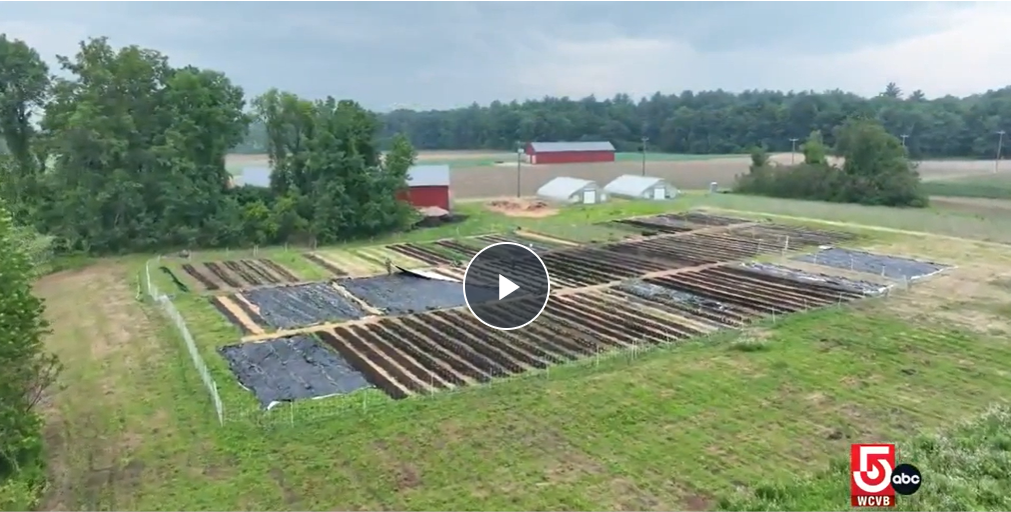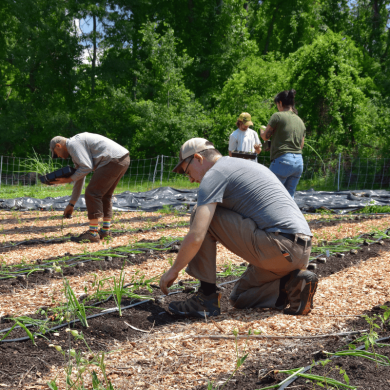
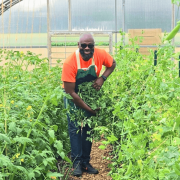
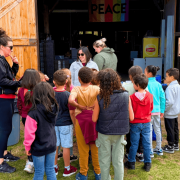
Connecting People to Agriculture
Our farms represent our unique approach to food banking- a shift from relying exclusively on donated food from food retailers and commodities from state and federal governments. They are an investment in local farmland to strengthen our local economy while providing a reliable source of healthy organic food for those who need it most.
On both farms, we contract local farmers who grow organic vegetables for the community, including people living with food insecurity. In lieu of cash rent, the Food Bank receives a share of the harvest, agreed upon in advance.
The First Food Bank Farm
This 60-acre parcel of land near the Connecticut River in Hadley was purchased in 1992, after Michael Doctor, with the help of volunteers, grew beans, tomatoes, and onions on a small parcel of land at Hampshire College. They used the food grown to make nutritious chili that was distributed through the Food Bank.
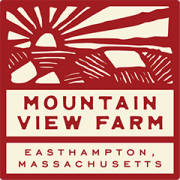 It originally ran on a Community Supported Agriculture (CSA) farm-share model, and it is now operated in partnership with Mountain View Farm, who leases it from the Food Bank in exchange for a share of fresh, local, USDA Certified Organic produce.
It originally ran on a Community Supported Agriculture (CSA) farm-share model, and it is now operated in partnership with Mountain View Farm, who leases it from the Food Bank in exchange for a share of fresh, local, USDA Certified Organic produce.
We distribute our share of this nutritious, local produce through our network, and Mountain View offers theirs through their own CSA.
Building on the First Farm’s Success
After years of searching with the support of the Kestrel Land Trust, in 2020, the Food Bank purchased its second 142-acre Food Bank Farm in Hadley building on the success of our first Food Bank Farm.
In this case, instead of partnering with a farmer who sells shares to shareholders at the original Food Bank Farm, the farmers of the new Food Bank Farm sell most of their share of the harvest to food retail stores and to public schools in high-poverty school districts. Farmers Joe Czajkowski, owner of Lakeside Organics adjacent to this farm, and Gideon Porth, owner of Atlas Farm, combined are farming about 35 acres.
Currently, three acres have been set aside for Cultivating for Community (CFC), our own regenerative farming and education initiative where CFC farm employees and volunteers grow and harvest organic vegetables. It was created as a result of a 2021 feasibility study >
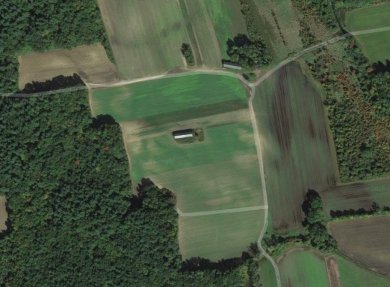
Aerial view of the new Food Bank Farm when it was purchased in 2020 (Google Maps)
Cultivating for Community
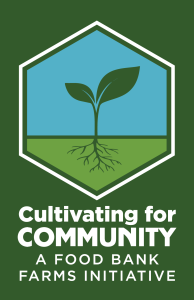 The CFC’s focus is on educating volunteers and students on regenerative farming, nutrition, the local farm economy and food insecurity. It puts into practice regenerative farming methods such as no-till farming, plant diversity and companion planting. The initiative also contributes to equity in the local farm economy through farmland leasing opportunities at the Food Bank Farm.
The CFC’s focus is on educating volunteers and students on regenerative farming, nutrition, the local farm economy and food insecurity. It puts into practice regenerative farming methods such as no-till farming, plant diversity and companion planting. The initiative also contributes to equity in the local farm economy through farmland leasing opportunities at the Food Bank Farm.
The harvest is distributed directly to three to Food Bank member food pantries for people who live with food insecurity.
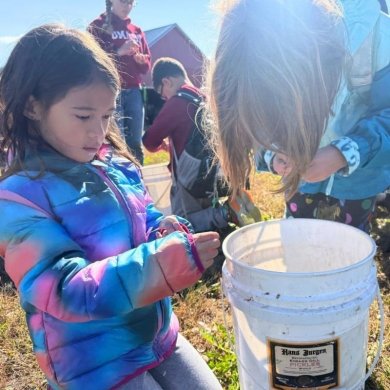
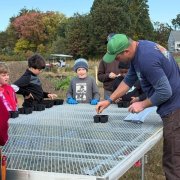
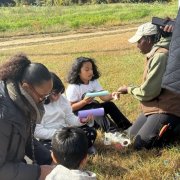
Cultuvating for Community
Innovative Farm to School Partnerships
Thanks to farm-to-school grants from the U.S. Dept. of Agriculture, the Food Bank now partners with the Springfield and Chicopee Public Schools to:
- Increase the amount of locally-grown vegetables that are served in school meals
- Teach students about the farms, vegetables and farmers who grow them, and
- The benefits of eating fresh (organic) vegetables
Funding and Preservation
Both farms are under Agricultural Preservations Restrictions thanks to important funding from the Massachusetts Department of Agricultural Resources. The Kestrel Land Trust secured this funding as well as a significant grant from the Town of Hadley, and used a bridge loan from The Conservation Fund, to purchase this second farm and sell it to the Food Bank. Similarly, the Food Bank secured the other half of funds to purchase the farm with grants from the H.P. Kendall Foundation and 1772 Foundation, and significant donations from several anonymous local donors.
Kendall Foundation executive director Andy Kendall says, “this purchase demonstrates the power of collaboration of local groups committed to food security, open space, and creating opportunities for young and expanding farmers. An especially exciting aspect of this collaboration is between the Food Bank and Springfield Public Schools.” The Kendall Foundation’s focus is to strengthen the food system of Western Massachusetts and New England by helping local farmers gain market access to schools.
The Kestrel Land Trust retains a trail easement for public walking on designated farm roads that link to the conservation lands on the Amherst side.


